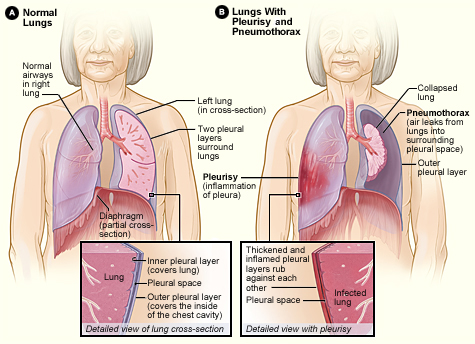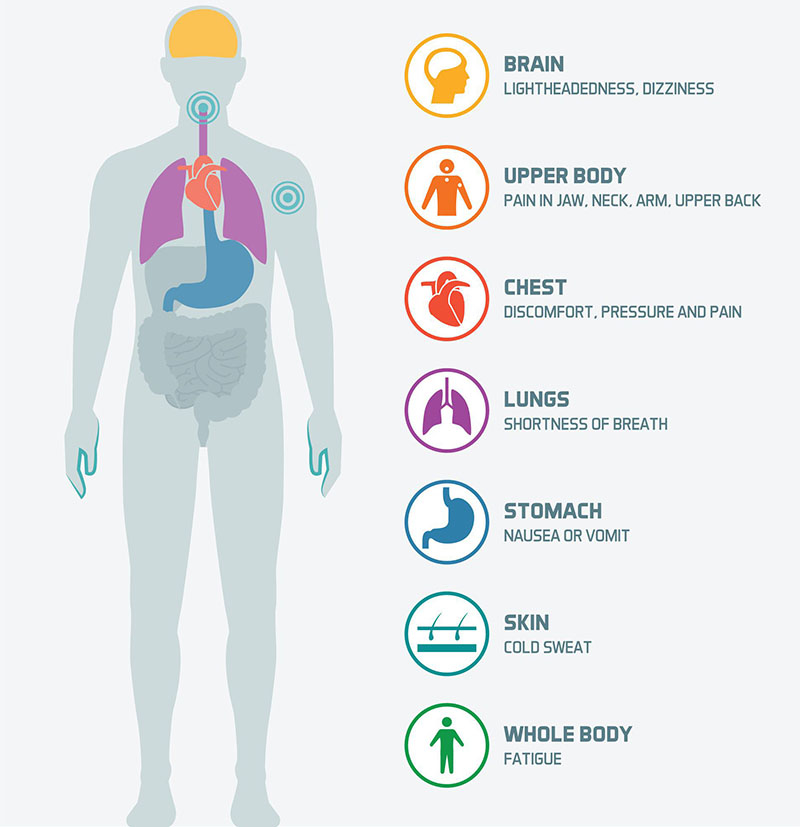
Pain in diffuse area including a constant pain in middle of chest. There are many types of angina including microvascular angina Prinzmetals angina stable angina unstable angina and variant angina.

Sensation of pain or of pressure tightness squeezing or burning.
Sharp pain in heart. Sharp chest pain could signal a pulmonary embolism a clot that lodges in the lungs. Besides pain symptoms can include shortness of breath pale skin racing heart and cough. Less likely to be a heart attack.
Sensation of pain or of pressure tightness squeezing or burning. Sharp or knifelike pain brought on by breathing or coughing. Gradual onset of pain over the course of a few minutes.
Sudden stabbing pain that lasts only a few seconds. Pain in diffuse area including a constant pain in middle of chest. Other symptoms are weakness trouble breathing coughing and palpitations which are feelings that your heart is skipping a beat fluttering or beating too hard or too fast.
Chronic pericarditis often causes tiredness coughing and shortness of breath. In this type of pericarditis chest pain is usually absent. Heartburn is chest pain that occurs when stomach acid leaks out of the stomach and back up into the esophagus food pipe.
The esophagus is the tube that connects the mouth and stomach. Heart pain or angina is a symptom of an underlying heart problem usually coronary heart disease coronary artery disease. There are many types of angina including microvascular angina Prinzmetals angina stable angina unstable angina and variant angina.
While those experiencing GERD describe their pain as sharp cardiac related chest pains are said to feel deep heavy squashing and tight. Cardiac pain may also cause other symptoms such as. Sudden sharp pains that disappear quickly can be caused due to gas heartburn smoking heart problems stress and lack of exercises among other factors.
Often sudden sharp chest pain lasting a few seconds is not an indication of a serious condition. However a sharp pain in heart for a second may be dangerous and should be treated. Although the heart is placed slightly to the left of the midline in the chest heart-related discomfort can be located anywhere above the diaphragm Acute pericarditis is one such cause of.
Chest pain and heart problems. The most common heart problems that cause chest pain include. Pericarditis which usually causes a sudden sharp stabbing pain that gets worse when you breathe deeply or lie down.
Angina or a heart attack which have similar symptoms but a. The journal Australian Family Physician reports that chest wall pain is often caused by inflammation or tears in the chest musclesSometimes pain in the back of the rib cage can wrap around to the front of the chest. Because intercostal muscle pain can feel like heart pain its important for doctors to first rule out cardiac-related events.
11 If doctors confirm that your heart feels sore. If you have ever experienced a sharp and sudden pain in the chest it may have been a condition called precordial catch syndrome PCS. The good news is that unlike a heart attack it is not.
When chest painparticularly pain in the lower chest is triggered by a meal it is likely to emanate from the digestive system rather than from the heart and can be due to the following. Burning squeezing tightness pressure or pain sensation. Knifelike or sharp pain felt when coughing or sneezing.
Gradual increase of pain over a few minutes. Pain concentrated on one point. Pain in the diffuse area including middle of chest.
Pain occurring distinctly on one side of the body. Pain extending to back jaw neck and left arm.